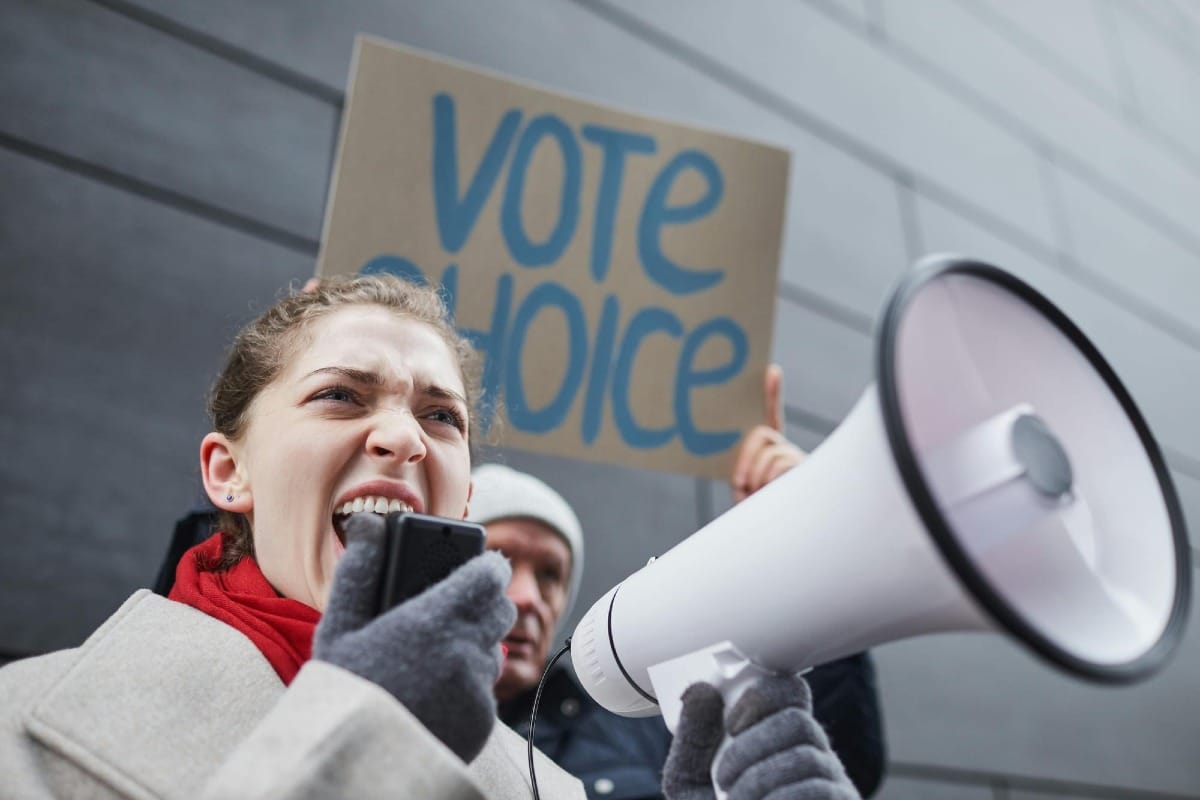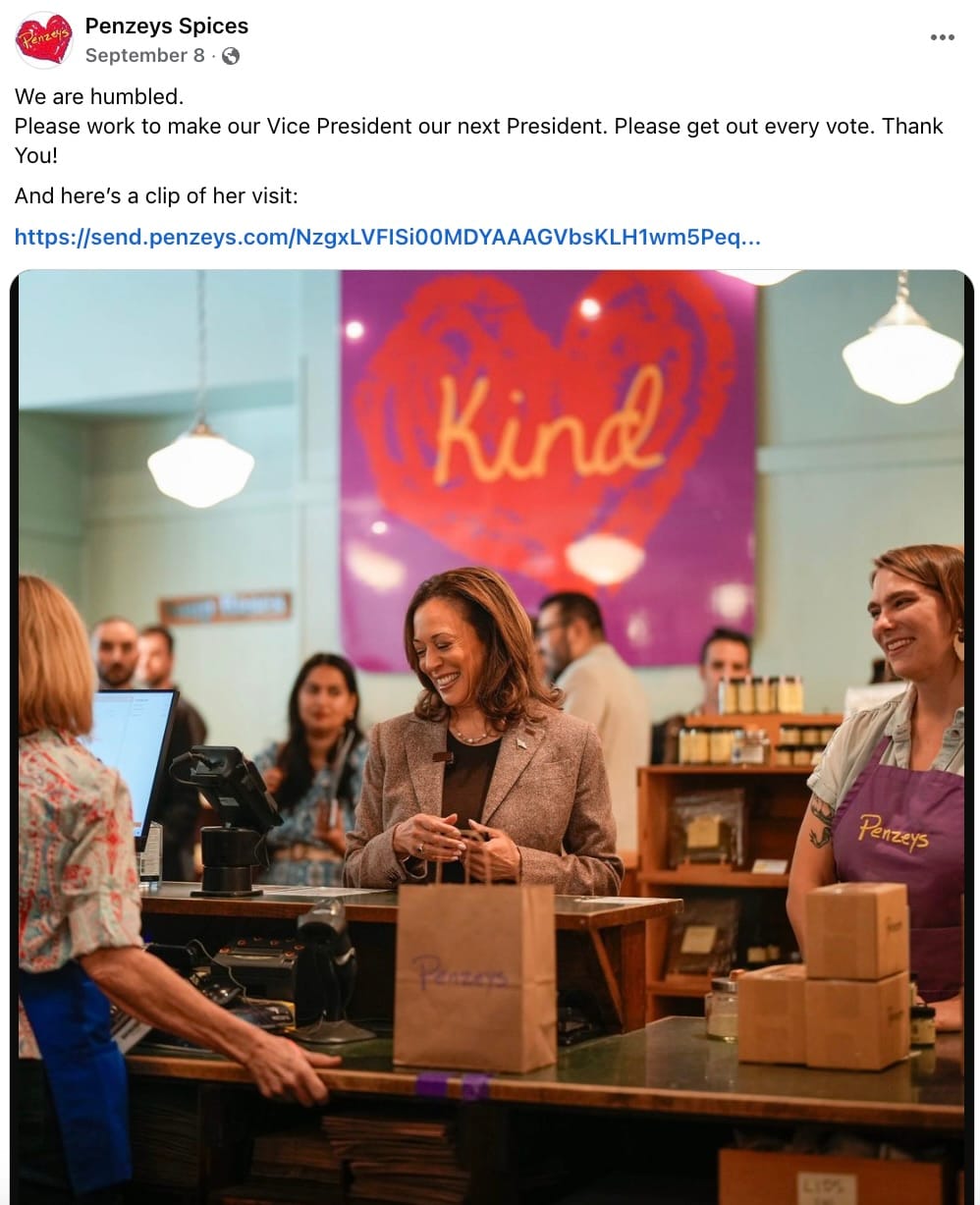When the Purchase Is Political: Navigating eCommerce in a Volatile US Election Season

In case you haven’t heard, there’s an election coming up in the United States. Not only do brands have to keep up with each other, but they also have to cut through the noise generated by political ads, polls, and a loud and divided electorate.
How divided? According to Pew Research, 49% of registered voters are Democrats or Democrat-leaning, while 48% identify as Republicans or Republican-leaning. For the country, that will mean a close and contentious election. But for brands, wading into the political fray — deliberately or otherwise — could mean alienating nearly half of consumers.
While mixing retail with politics comes with risks, however, there are potential rewards. By taking a stand, merchants may attract new customers and bolster loyalty among those who share their values.
In this article, we’ll dive into what the research says about incorporating politics into your marketing strategy, and explore the pros and cons that brands should consider when navigating this potential minefield.
What consumers want from brands
Brands may think consumers don’t want to know their politics, but that couldn’t be further from the truth. Edelman’s 2024 Trust Barometer Special Report: Brands and Politics found that 60% of consumers buy from or boycott brands as an expression of their politics. And 84% of U.S. consumers said they only buy from brands that share their values.
With so many consumers expecting their favorite brands to align with their values, merchants may want to avoid thorny issues altogether — but that, too, comes with risks. Nearly 6 out of 10 respondents who are Gen Z and/or on the political left associate silence with doing nothing or hiding something.
Why it’s important to know your customers
Having the right kind of data on your customers can help you decide whether or not political risks are worth taking. A YouGov study found vast differences in the brands preferred by liberals and conservatives and that less than 30% of major US brands enjoy bipartisan support, including ubiquitous retail giant Amazon and drugstore beauty brand Maybelline. There’s a good chance that your audience leans one way or the other, and if your brand values are aligned with those of your customers, it might be worth it to be loud and proud.
For brands looking to broaden their reach or acquire a new type of customer, the stakes are higher. Bud Light learned this lesson the hard way when it partnered with trans influencer Dylan Mulvaney, leading to a massive boycott and negative posts across social media. The brand likely wanted to reach a new audience, but they ended up alienating much of their existing one. Worse, instead of standing behind their campaign in the face of blowback, they immediately backtracked — losing any goodwill earned from Mulvaney’s fans.
A tale of two (very) political eCommerce brands: Sticker Mule and Penzey’s Spices
Let’s take a look at how two brands at opposite ends of the political spectrum are navigating politics in the lead-up to the 2024 election.
Sticker Mule courts controversy with Trump support
Custom printing brand Sticker Mule joined the political fray back in July with an email to over four million subscribers from co-founder Anthony Constantino. While the email called for an end to political violence and divisiveness in the wake of an assassination attempt against the former president, the subject line — which read “Trump 2024” — was a clear endorsement.
Subscribers expressed shock and outrage on social media, leading to a wave of press coverage and a surge of support for the brand on X. The company saw a 43 percent jump in web traffic year over year, but still took a hit in sales. Since then, the brand has doubled down on supporting the former president, even displaying a 100-foot pro-Trump sign over its Amsterdam, NY headquarters.
Some Sticker Mule employees also anonymously expressed displeasure at the company’s veer toward overt politics. According to a Qualtrics study, 49% of workers agree it’s more important for leaders to speak out on social, political, and environmental issues now than ever before — but like your customer base, if you aren’t aligned on those issues, you risk alienating them.
Whether the brand’s move will pay off in the long term remains to be seen, though they’re now enjoying their status as the right-wing darlings of sticker commerce.
Penzeys leans into its longstanding liberal politics
On the other side of the political divide, spice purveyor Penzeys has always been known for being unapologetically liberal but has gotten more vocal over the past few years. The brand even features an “About Republicans” page on its store’s website with a letter from founder Bill Penzey criticizing the party and its policies.
Vice President and Democratic presidential candidate Kamala Harris faced backlash recently for visiting a brick-and-mortar location of Penzeys, which the brand used as a marketing opportunity. Following her visit, the retailer lost 3,190 subscribers from its email list but gained 7,739, and Fox News branded it “the meanest little spice shop in America.”

The lesson? Being outspoken about support for a political candidate or party will likely result in lost customers. If that support reflects who you are as a brand and what you have always stood for, however, it also might lead to some new ones.
Wading into politics isn’t always a deliberate choice for brands
So, you’ve decided to stay out of the political fray.
That doesn’t mean you won’t get caught up in it, though.
Imagine you partnered with an influencer to promote a product, and her next post is an endorsement of one of the candidates. Or you run an ad on social media, which gets shown alongside conspiracy theories from a prominent figure about the upcoming election? To a casual social media user, it may look like your brand endorses those positions.
Companies have sprung up to help brands navigate these situations. AI-driven technologies like ones offered by marketing firms Captiv8 and Viral Nation offer risk assessments on influencers — measuring how likely they are to jeopardize brand safety. And to avoid trouble, some brands have scaled back on advertising where they are likely to encounter trouble, like social media sites like X and news organizations.
Ways to get political without alienating half of the country
It may be tempting to opt out of politics right now, but political advertising and messaging is everywhere — and your brand still needs to engage customers. Here are some ways to participate without alienating shoppers:
- Urge and/or incentivize customers to register to vote.
- Donate a percentage of sales to non-partisan groups like vote.org or to relief efforts, like Hurricane Milton, without wading into voting rights or government response to tragedies.
- Use messaging around human rights or unity without specifically endorsing a political ideology.
- Take up specific issues that are an extension of your brand and feel authentic rather than supporting a party or candidate. For example, e.l.f. Beauty supported women’s reproductive rights in the aftermath of the overturning of Roe v. Wade, which made sense for a brand catering to young women, who tend to skew pro-choice.
- If you do take a stance and face backlash, don’t back down. If you reverse course, you risk alienating potential customers on both sides of the political spectrum and being seen as standing for nothing.
If it seems like everything is political these days, it’s because people are more divided and vocal than ever — and it’s increasingly shaping how they shop. And it’s not just happening in the United States and it’s not limited to the 2024 election. It’s important for brands everywhere to be part of the conversation so they don’t get lost in the noise, but it’s important to do it in an authentic way, and that any risks you take are calculated and data-driven. Stick to your brand values and the right customers will find you, regardless of who wins in November.

